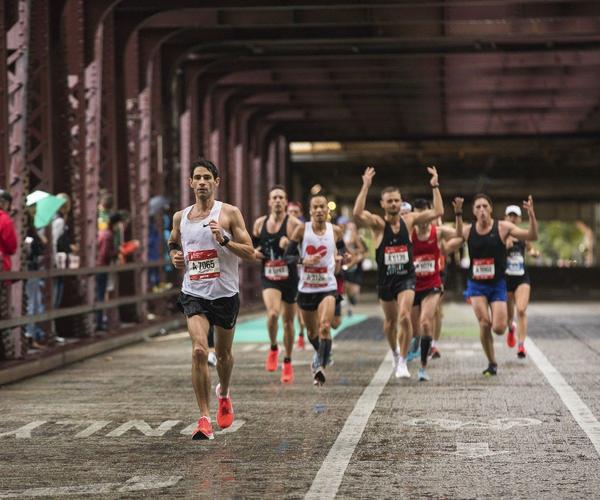I talked about the previous training methods and goals. I want to increase my time, but I don't want to spend more time on practice. He sent a link to past logs left online to the trio, explaining that it was now all recorded in "Strava". The trio assert that as long as science and some calculations are used, it is possible to overcome the impact of age.
「フィットネス」×「ランニングエコノミー」÷「質量」The physiological functions related to running can be divided into three types. The first is fitness (physical strength). How quickly oxygen can be transported to muscles and how far it can run before lactic acid accumulates in the blood is a question. The second is the economy of running (the economy of running), that is, exercise efficiency. The third is quality, in short, it is a matter of weight. "fitness x running economy / quality". This determines the speed of running.

Although old, these variables do not necessarily get worse. It's easy to gain weight when you get older, but you can also try to fall off. If you form a bad habit as a result of injury, your posture will change with age. For example, if you hurt your right ankle, you will add weight to your left foot. But habits formed unconsciously can generally be eliminated through conscious efforts.
According to Kirby, a sports scientist, the most important thing is that muscles go bad as they get better. After repeated training, the energy conversion efficiency of mitochondria in muscle cells has been continuously improved. It creates new blood vessels. The tendons become strong. On the other hand, the amount of fat-free muscle decreases with age. This is a problem for marathon runners and even more troublesome for sprinters. Having said that, this reduction does not necessarily occur sharply.
The biggest reason for the decline in runners' speed is not their body, but their life. Get married and have children, work more hours, and parents get sick. In other words, you will spend more time doing more important things. Running is a sport that pays off for people who work hard, and it's hard to return once you leave. Physical decline will make running unhappy, and the recession will accelerate further. It is also true that the speed decreases as you get older, but it begins to get older when the speed begins to decline.
進化するエリート選手のトレーニング方法About 13 years ago, I was doing almost the same training. On weekdays, almost every day, I run more than 6 kilometers one way from home to work (of course taking a bath). When you have no plans for a marathon, run 50 to 65 kilometers a week. In the three months before the race, I ran 30 kilometers on weekends and ran faster than usual at work. During this period, I ran 80 km to nearly 100 km per week.
According to Michael Jonah, a sports physiologist at the Mayo Clinic and a researcher on the history of running, the training methods of elite athletes are constantly evolving. A hundred years ago, Alfred Schlab, then the world's fastest long-distance runner, said he would only run at a certain speed for three to five days a week, less than an hour a day.
